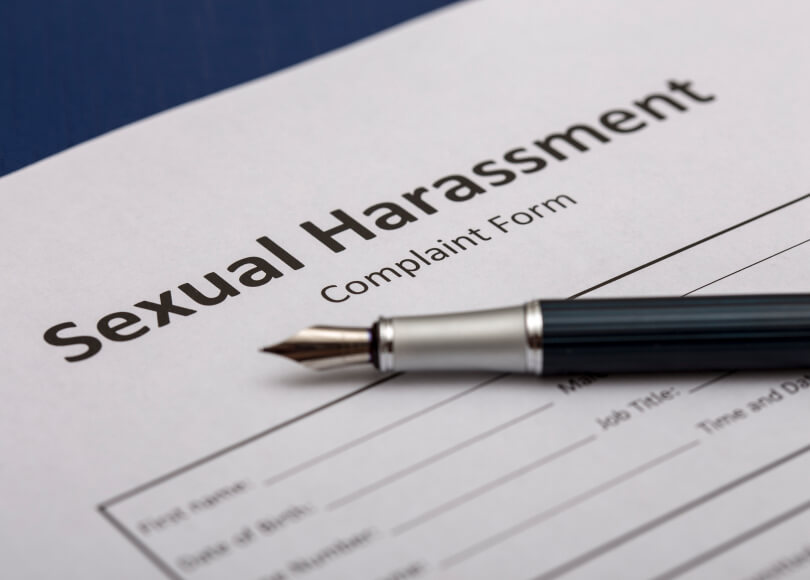Post authored by Max Barack
Starting January 1, 2020, it will be much harder for employers to ignore or cover up ongoing sexual harassment in the workplace. Currently, employers often treat sexual harassment as a minor nuisance to be dismissed. Those who knowingly employ sexually predatory supervisors or employees have historically prevented any negative repercussions by forcing recently hired employees to sign preemptive confidentiality and non-disparagement agreements before they start working. This used to all but ensure the information would not become public.
That may all be changing. In the wake of the #MeToo movement, Illinois legislators took a positive step to combat workplace sexual harassment and hold indifferent employers accountable. The Workplace Transparency Act (“WTA”) creates new requirements for employers that will make it more difficult for repeat offenders to keep their actions “quiet.” It will also limit employers’ ability to force small settlements on victims in exchange for their silence and will require them to take sexual harassment education seriously.
Repeat Offenders Will Now Face Possible Consequences
The WTA was signed into law in June 2019 and includes several new employer obligations directly aimed at combatting workplace harassment. One of the most important aspects of the WTA is its amendment to the Illinois Human Rights Act (“IHRA”) mandating new and/or expanded employer disclosures. As background, one of the Illinois Department of Human Rights’ (“IDHR”) main duties is to investigate charges of discrimination and harassment. Beginning July 1, 2020, all employers, or any business employing one or more individuals, who have experienced an adverse judgment or administrative ruling must make annual mandatory disclosures to the IDHR. See 2019 Ill. Legis. Serv. P.A. 101-221, S.B. 75. This would include the total number of adverse judgments or rulings where there was a finding of unlawful sexual harassment or discrimination against the employer in the prior calendar year. Id.
Crucially, if the IDHR is investigating a charge, it can also request the employer to submit the number of settlements that occurred during the preceding five years for such claims. The IDHR will not publish this information about companies and private citizens cannot obtain this information through a Freedom of Information Act request. However, the risk to employers comes from the fact that the IDHR will be able to use that information to investigate employers with a history of repeated harassment or discrimination settlements. The IDHR can then bring discrimination charges and further investigations into company behavior.
This transparency requirement means there is a risk for employers to continue employing repeat offenders. Such employers or businesses that continue to allow harassment to occur and face repeated judgments or settlements may soon find themselves subject to additional investigations as a consequence of allowing that behavior.
No More Automatic Secrecy
Perhaps even more important than the mandatory IDHR reporting requirement is the limitation on confidential agreements imposed unilaterally by employers. One of the reasons victims often fear reporting harassment is a fear of losing their job. Victims are all too often pressured to take a small severance in exchange for confidentiality and waiving their rights. Often suffering from emotional distress as a result of the harassment they have endured, victims are frequently pressured into signing agreements that compel their secrecy, end their employment, and waive all of their legal rights to any financial recovery. The WTA limits the circumstances where these outcomes would happen.
Under the WTA, employee termination or separation agreements including confidentiality provisions are only permissible where: (1) the harassment or discrimination claims arise before the agreement is signed (meaning employment cannot be preemptively conditioned on future secrecy), (2) the clauses are mutually agreed upon and to the benefit of both parties, (3) the employee has 21 days to review the agreement and take it to an attorney before the parties execute it, and (4) the employee has 7 days after signing the agreement to revoke it; the agreement is not enforceable until that revocation period ends. As a result, employers can no longer throw an agreement in front of employees and demand them to take it or leave it because such agreements will not be enforceable.
The WTA also provides that any agreement preemptively preventing honest/truthful public disclosures about unlawful employment practices is void and contrary to public policy. In cases like this, preemptive confidentiality agreements about sexual harassment will no longer be an easy escape. To be clear, employers will still be able to insist on confidentiality related to settlement of sexual harassment claims. However, this provision of the WTA ensures that this confidentiality will have to be bargained for, and victims will at least be given time to have an attorney review the agreement and confirm that signing it is in their best interest.
Education is Now Mandatory
The WTA’s new educational requirement also shows how the WTA aims to augment workplace sexual harassment protections. The WTA amends the IHRA such that, effective January 1, 2020, employers will be required to use a sexual harassment training program for all workers. This training has specific requirements to ensure the training is substantive and effective. The training must include, at a minimum, the following:
(1) an explanation of sexual harassment;
(2) examples of conduct that constitutes unlawful sexual harassment;
(3) a summary of relevant federal and state statutory provisions concerning sexual harassment, including remedies available to victims of sexual harassment; and
(4) a summary of employers’ responsibilities in preventing, investigating, and implementing corrective measures of sexual harassment.
The IDHR has been tasked with creating a model program. Employers can either use the model program or establish their own program that equals or exceeds the minimum training requirements. The model program can be used to supplement any program that the employer creates.
Importantly, this is not a one-off box that an employer can haphazardly check once and then forget forever. The training must be provided annually. It is not enough to do it once and have the staff sign off on it. Employers who do not provide training compliant with the WTA’s requirements will be subject to civil penalties, including a $500 penalty to businesses with less than 4 employees, or a $1,000 penalty to those with 4 or more employees. Penalties for repeat violations can rise to $5,000 per violation.
Big Picture
So, what does all of this mean? The WTA is a step in the right direction. The WTA’s educational requirement will not magically eliminate all workplace sexual harassment. However, it ensures that employers must provide legitimate educational content to their employees, which must identify conduct constituting unlawful sexual harassment. Providing victims with information about their available remedies also guarantees they will know their options. Harassment victims frequently contact employment lawyers after a crucial statute of limitations has passed because they do not know the available remedies. Thanks to the WTA, that should happen less often.
As a practical matter, while the education requirement does not guarantee harassment will disappear, the failure to comply will be relevant for discovery purposes. Plaintiffs’ employment lawyers already ask for whatever sexual harassment policies and training exist as a regular matter of course in sexual harassment cases. It should be a useful exercise to seek discovery on whether the employer has complied with the training requirement. The lack of a harassment/anti-discrimination policy is already useful evidence for purposes of establishing liability in these sorts of cases. The failure to comply with a statutory mandatory sexual harassment training requirement will be even more powerful.
A Good Start
The mandatory reporting of settlements, adverse rulings and judgments to the IDHR will not completely prevent future harassment. It will, however, cause repeat offenders to fear subsequent IDHR investigations and discrimination charges if serial harassers are allowed to keep their jobs.
Finally, the requirements related to settlement agreements will not force victims to sign away their rights and ability to discuss what happened before speaking with a lawyer. Hopefully, these changes will make employers stop sweeping harassment allegations under the rug and take education and prevention seriously. If not, the new limits on these agreements will give plaintiffs’ lawyers a better chance to act on behalf of victims.
Originally posted on the Chicago Bar Association’s Young Lawyers’ Blog – @theBar.”


